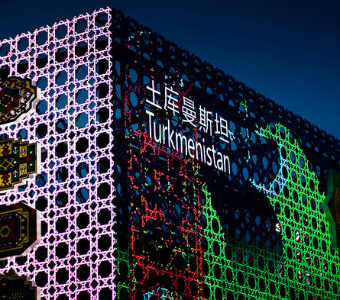Transparency International’s Corruption Perceptions Index, launched today, confirms Turkmenistan’s position as one of the world’s least democratic regimes. Promoters of the Nabucco gas pipeline project have opted to adopt a surprisingly tolerant approach to Turkmenistan’s endemic failings.
, | 26 October 2010

Transparency International’s Corruption Perceptions Index, launched today, confirms Turkmenistan’s position as one of the world’s least democratic regimes. Promoters of the Nabucco gas pipeline project have opted to adopt a surprisingly tolerant approach to Turkmenistan’s endemic failings.
Today’s launch of Transparency International’s Corruption Perceptions Index comes as no surprise to those following the political situation in Turkmenistan. The country’s low ranking (172th out of 178 countries) confirms its position as one of the world’s least democratic regimes and backs up its miserably low scores on political rights and civil liberties as well as freedom of the press.
Promoters of the Nabucco gas pipeline project have opted to adopt a surprisingly tolerant approach to Turkmenistan’s endemic failings – it is potentially a key supplier for Nabucco, though cementing guarantees to fill the EUR 8 billion pipeline’s overall planned capacity of 31 billion cubic metres per year is proving to be a messy, highly politicised task. Even so, the project – aimed at bringing Caspian or Middle Eastern gas to Europe and on the planning table for over a decade – is now under consideration for funding by the International Finance Corporation, the European Investment Bank and the European Bank for Reconstruction and Development.
It is against this backdrop that a Partnership and Cooperation Agreement between the European Union and Turkmenistan is currently being discussed in the European Parliament, which in a resolution from April 2009 decided on concrete human rights benchmarks to be met before ratification of such an agreement and while not essential for Turkmenistan to become involved in Nabucco, an agreement would help to facilitate a supplies deal. But while human rights and corruption indices continue to paint a bleak picture, an assessment of those very benchmarks has yet to make it into the European Parliament’s discussions.
It has though recently emerged that the European Parliament has postponed its plenary vote on the agreement – previously scheduled for the end of November – until at least March 2011. Pressure from Bankwatch and other civil society organisations such as the Open Society Institute, Global Witness and Human Rights Watch has been a contributing factor to this delay.
Bankwatch urges the European Parliament to use this extra time for a more thorough discussion on cooperation with the Turkmen regime, one guided not simply by economic arguments. We also urge the international financial institutions to take note of the need for more scrutiny before considering unprecedented sums in support of Nabucco. Projects on the scale of the Nabucco pipeline, that would further help to strengthen an authoritarian government (pdf), have to be out of bounds for public development finance until tangible improvements in the human rights and governance situation in Turkmenistan have taken place.
Never miss an update
We expose the risks of international public finance and bring critical updates from the ground – straight to your inbox.
Institution: EBRD | EIB
Theme: Energy & climate | Social & economic impacts
Location: Turkmenistan
Project: Nabucco gas pipeline
